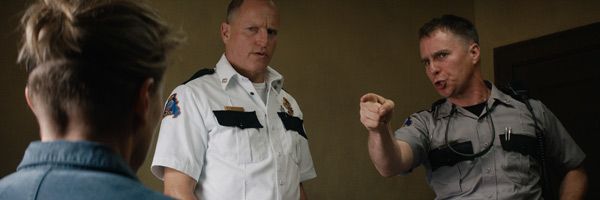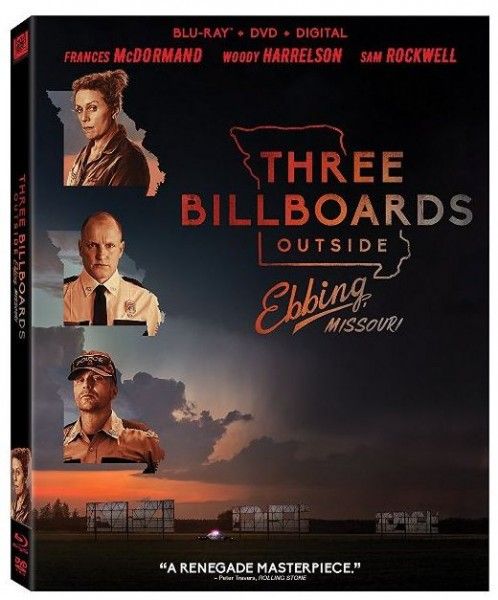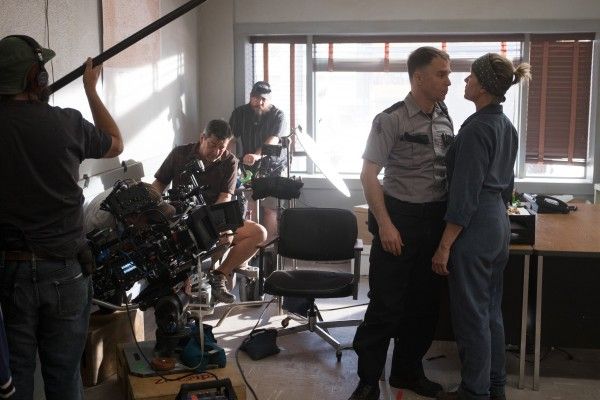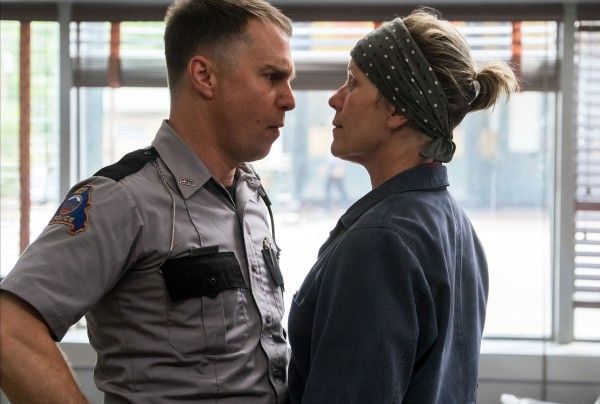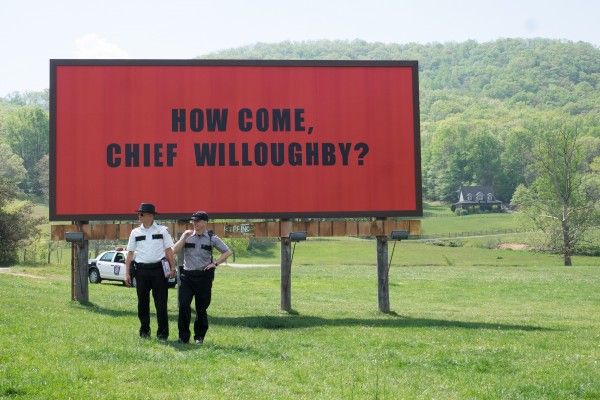Despite the blowback, I think Three Billboards Outside Ebbing, Missouri is a good movie. It’s intentionally messy, and I think some parts have been misinterpreted (for example, I don’t think there’s a redemptive arc for Dixon (Sam Rockwell) or anyone in the movie; it’s about the impossibility of justice and the necessity of grace), which can be chalked up to weak screenwriting and clumsy direction. It’s not a perfect film by any stretch, and one area where I certainly agree with detractors is how problems, particularly the treatment of rape victims and police brutality against people of color, are treated in the abstract.
Three Billboards hit Blu-ray last week, and the disc contains five deleted scenes. While none of these scenes change the overall film, and you can understand why director Martin McDonagh left them on the cutting room floor, a couple of them show a movie that at least wants to look at Dixon’s relationship with people of color, represented by Denise (Amanda Warren) and Jerome (Darrell Britt-Gibson).
One scene has Denise under arrest, something that’s only referred to in the finished film rather than shown. In the deleted scene, we see Denise and Dixon hanging out in the interrogation room. She’s being used as a pawn so that Mildred will take down the billboards, but the scene has an interesting undercurrent as Denise keeps asking if the “nice cop” (Willoughby) will come by. She then asks if Dixon will take over when Willoughby dies, and it’s a fraught question for both parties. Dixon is dumb, impulsive, and racist, and Dixon, in his simple-minded way, doesn’t want to think of Willoughby dying. It doesn’t fix the problem of Denise being a one-dimensional character, but it does provide more texture into the relationship between Dixon and black people.
We get a similar deleted scene with Dixon in a bar getting drunk and Jerome coming over to try and quiet him down when Dixon starts to harass the bartender. It’s a nice little moment of Jerome showing a little humanity to someone who doesn’t really deserve it, and in the larger scheme, ties into the film’s morality that the best we can do for others is to show them small acts of kindness because justice is impossible. But, like the scene with Denise, it doesn’t really go far enough into showing who Jerome is, and instead just provides a bit more about Dixon, who already has plenty of scenes giving us that information.
These deleted scenes wouldn’t have “fixed” Three Billboards, but they remain an interesting look at a film that probably could have done more to flesh out its black characters rather than having them serve as symbols or part of the background. That kind of intersectionality can sometimes run up against the needs to tell the best story, but that’s why good storytelling is tough and why Three Billboards has issues it never entirely irons out. Nevertheless, it’s still a powerful and welcomingly difficult movie that belongs in your collection.

